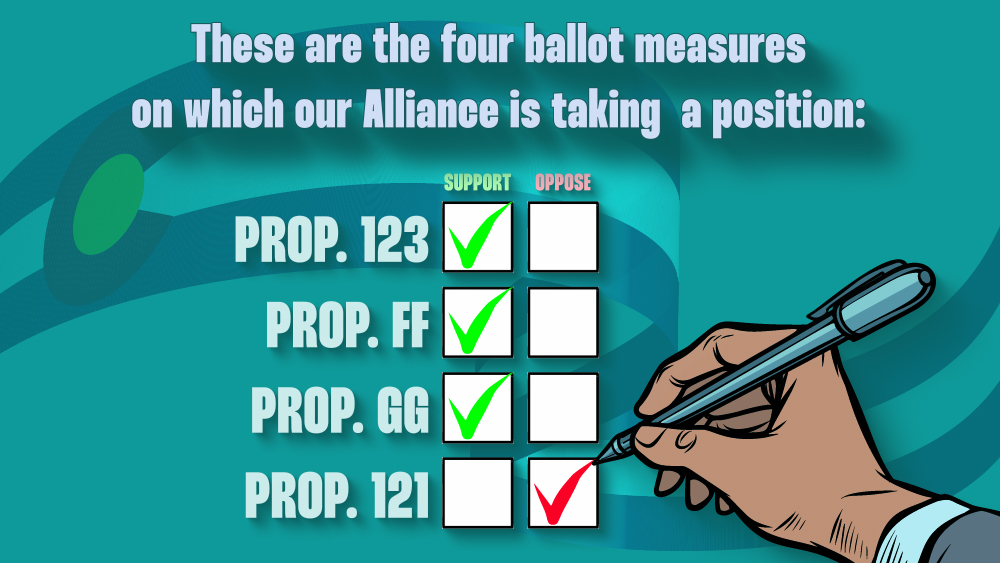- An Alliance For Community Action
- (970) 256-7650
- info@WesternColoradoAlliance.org
Our Alliance gets out the vote in three counties!
Understanding what issues are impacting our neighbors locally is key to our Get Out the Vote (GOTV) effort this year.
As we’ve heard across Mesa, Montrose, and Garfield Counties, people are struggling with issues like affordable housing, economic insecurity, substance abuse, addiction, safety, and support for youth. (See page 4 for more on our deep listening results.) Multiple upcoming regional and statewide ballot measures relate to these issues.
As the midterm election approaches, we’re reaching out to folks we’ve listened to through deep canvassing, ensuring they are informed on those measures connected to the issues impacting them.
In our Alliance’s case, deep canvassing helps people vote with their self-interest by breaking down partisan barriers, providing education around ballot measures, and allowing people to persuade themselves on an issue. We’ll also use what we’ve heard to strategically endorse propositions in traditional GOTV canvassing.
For example, affordable housing is a concern in all of our communities.
Proposition 123: Dedicate Revenue for Affordable Housing Projects was designed to address affordable housing problems across Colorado.
Prop. 123 would allocate funding for affordable housing programs by reserving a portion of state income tax revenue. Programs would include land banking, affordable housing development assistance, equity investments to benefit renters, home ownership and down-payment assistance programs, rental assistance and eviction protection to address homelessness, and grants to support local government planning departments. Prop. 123 is funded by reserving 0.1% of individual and corporate income tax and will have minimal impact on tax refunds for low- and middle-income earners. An individual making the state median of $58,000 would contribute about $12 to the fund.

Another statewide measure we will be talking about is Proposition FF: Healthy School Meals for All. Passing Prop. FF would provide access to free meals for all public schools in Colorado. It would also increase compensation for those who prepare and serve school meals and incentivize offering local foods on school menus.
Funding for the program would come from reducing income tax deduction amounts for those earning over $300,000 annually. The tax revenue generated by this is estimated at just over $100,000,000. Last year there were over 886,000 children enrolled in Colorado public schools (preschool through 12th grade). Ensuring all these children are fed alleviates financial and temporal strains on parents and guardians, removes stigma and barriers for students currently eligible for free and reduced meals, and helps kids keep their focus on their education. We will also look at local measures on the ballot . In Grand Junction, for example, there is a 1% increase to the city’s 6% lodging tax to fund affordable housing, and an 8% tax on short-term rentals to fund affordable housing.
Informing the community on issues that relate to them gives them power to make changes they want to see. Our last method for deep canvassing is neighborhood meetings.
We intend to facilitate small neighborhood meetings beginning in late October, bringing together residents to meet their neighbors, discuss local issues, and begin to develop potential solutions for those issues.
We will share information about these statewide propositions and any relevant local measures with the group and discuss their benefits. The small setting allows for in-depth conversations about the measures, providing another avenue to deep canvass with County residents.


